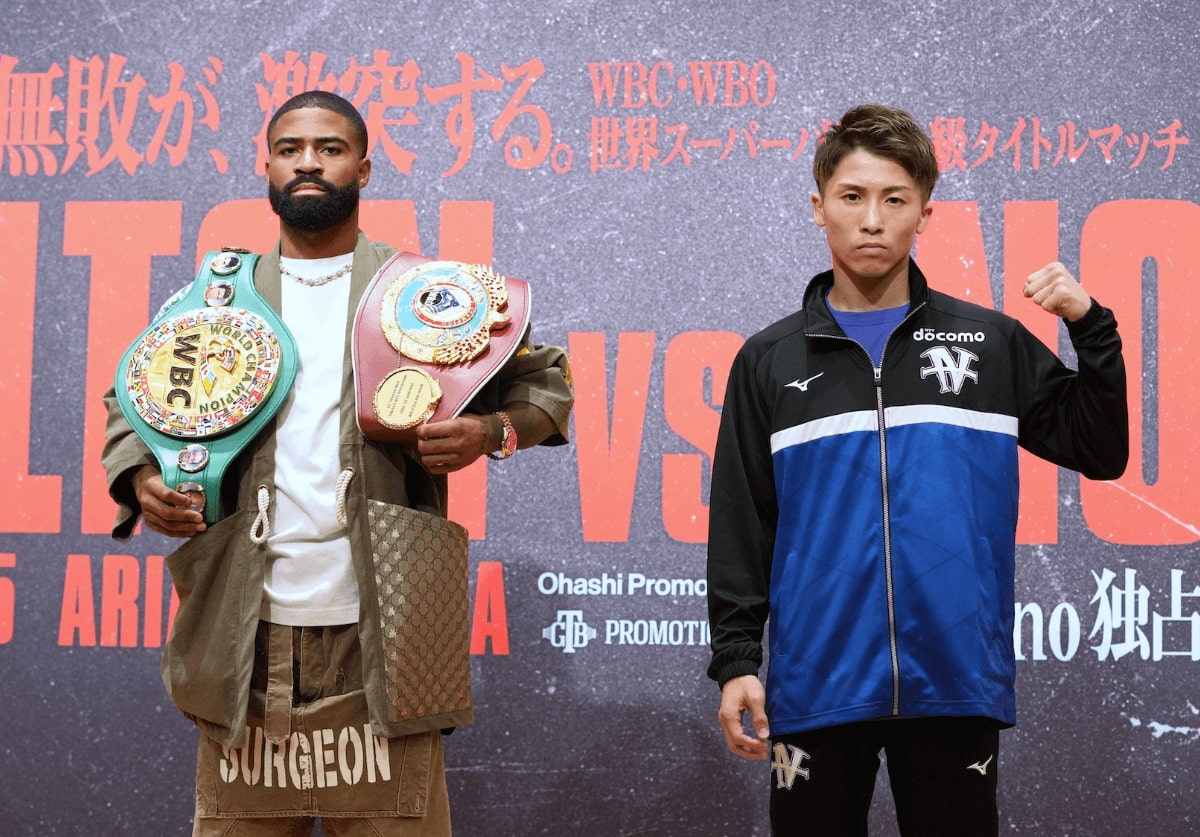Stephen Fulton has revealed the demons Vergil Ortiz would have been confronted with when he was forced to withdraw from his fight with Eimantas Stanionis.
Fulton on Tuesday in Tokyo defends his WBC and WBO super bantamweight titles in his defining fight against Naoya Inoue, and does so as one of the world’s finest fighters having previously recovered from a setback with his health.
When Fulton was first scheduled to fight for the then-vacant WBO title against Angelo Leo in July 2020, he was forced to withdraw at late notice when he tested positive for coronavirus. He then had to wait six months to challenge Leo for the title Leo had won in his absence.
Fulton responded by winning his first title and enhancing his reputation with victories over Brandon Figueroa, when he also won the WBC title, and Daniel Roman since then. Ortiz has so far been less fortunate – his struggles with long Covid contributed to him being diagnosed with the potentially even more debilitative rhabdomyolysis.
The condition forced the postponement of dates with Michael McKinson and Stanionis even before the cancellation of the most recent July 8 date with the Lithuanian when it was reported he had fainted. Fulton endured considerably fewer concerns surrounding his health but hasn’t forgotten the feeling of being deprived of the opportunity to fight.
“It’s very difficult [to endure that] ‘cause you have to deal with yourself – your body – rejecting itself, and your physical health,” said the 29 year old. “Emotional state of mind – you have to deal with the fans. Now they’re talking shit about you. You have to deal with – it’s like – you have to deal with fighting yourself ‘cause you knew how hard you worked.
“And sometimes when you know how hard you’ve worked and you may look at it like, ‘I did this for nothing', when there’s always a reason – everything happens for a reason.
“But in the heat of the moment you don’t look at it that way. So I feel like as a fighter you have to deal with a lot. On your own, no matter how many people was in your corner, you’re still the one in there on your own.
“Whether it’s in the ring or in your head, you’re the one putting that physical work in in the gym. It’s a lonely sport so you’re always alone. So I definitely feel for him now. And now I’m speaking on the subject ‘cause that is very hard to overcome, but, you know, we’re fighters – there’s nothing that we can’t overcome.
“That wasn’t a fight like, ‘I’m looking forward to it’ – I wasn’t really looking forward to that fight ‘cause I wasn’t really worried about that fight. But I’m glad that [Ortiz is] okay now – I have to say that. Well, I don’t have to say that, but I can say that. I’m glad that he’s okay now but I didn’t really put too much thought into that fight.”
In Japan’s heavy-handed, 30-year-old Inoue, Fulton is fighting one of the world’s most intimidating fighters. He regardless insists that his upbringing in the projects of Philadelphia, where people he knew were murdered and where as a teenager he considered dealing drugs, means that anything Inoue can confront him with is something he can seamlessly put into perspective.
“You don’t really worry about somebody saying that they’re intimidating,” he said. “When you have different upbringings, and you know your upbringing – how hard it is to make it where you made it from – then nothing is intimidating. What is intimidating? We fight. What is the intimidating part? Because he’s known for his power? Like, okay. Where do the other intimidating aspects come from? What can he possibly do to hurt me? Besides from having power. Like, people [pauses] – since I’ve been out here, this week alone, three people that I’ve known, have died, in Philadelphia. So you get what I’m saying? Literally three people that I’ve known have died. Two of them got killed; one of them died from cancer.
“I’m not sure – I don’t wanna put that [the circumstances surrounding the other two deaths] on record – to say it was [crime-related], but, literally… So it’s like where you come from – where I’m from, and you have a guy, I couldn’t say if he is like that or he isn’t, but, I don’t think that [Inoue] was raised like that, you know? He was raised like a good kid. Nothing intimidating about him. He was just a great fighter.
“I don’t reflect on [my upbringing in Philadelphia and how I very nearly went down a different path] as much, but I just always feel like, ‘Damn, we was just guys playing’. Like, this was meant for me. And that’s how I look at where I’m at right now. This was meant for me.”

